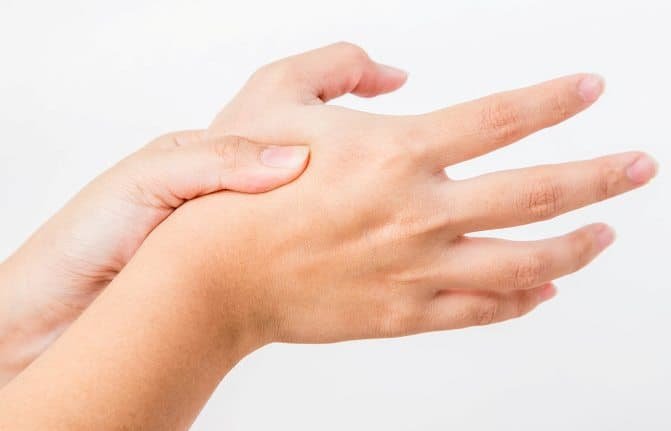Hair loss is a common concern among people of all ages and genders. In Hyderabad, like in many other parts of the world, individuals often face hair thinning and loss due to various reasons. While shedding a few strands of hair is a natural process, excessive hair fall can signal an underlying issue that requires attention. Understanding when to consult a professional hair fall doctor can help prevent further damage and restore your hair health. Here’s what you need to know.
Types of Hair Loss
Hair loss, or alopecia, can occur for several reasons. It is important to differentiate between the common shedding of hair, which is part of the hair growth cycle, and excessive hair fall that could be indicative of a medical condition.
- Androgenetic Alopecia (Male and Female Pattern Baldness): This is the most common type of hair loss, usually resulting from genetic predisposition. It leads to a gradual thinning of hair, typically starting at the crown or temples in men and thinning across the scalp in women. Male pattern baldness is often marked by a receding hairline, while women may notice broader parts or overall thinning.
- Telogen Effluvium: A temporary form of hair loss, telogen effluvium occurs when a large number of hair follicles prematurely enter the shedding phase. Stress, hormonal changes, nutritional deficiencies, or pregnancy can trigger this type of hair loss. Telogen effluvium is reversible, and once the underlying cause is addressed, hair growth typically resumes.
- Alopecia Areata: This condition causes sudden hair loss in round patches and can affect both the scalp and body. It occurs when the immune system mistakenly attacks hair follicles. While it can be unpredictable, some cases resolve on their own, while others may require treatment.
- Traction Alopecia: This type of hair loss occurs due to excessive tension on the hair follicles from tight hairstyles, such as braids, ponytails, or buns. Over time, this can lead to permanent hair loss if not addressed.
- Scalp Infections: Fungal or bacterial infections, such as ringworm, can lead to patchy hair loss. These infections may cause redness, swelling, and discomfort, and they require medical intervention to treat effectively.
Common Causes of Hair Loss
Several factors can contribute to hair loss, and understanding them is crucial in determining when to seek professional help. These factors include:
- Genetics: As mentioned, a family history of baldness often dictates susceptibility to hair loss, especially for androgenetic alopecia.
- Hormonal Imbalances: Conditions such as thyroid problems, polycystic ovary syndrome (PCOS), and pregnancy can lead to hair thinning or loss.
- Stress: Physical or emotional stress can trigger telogen effluvium, causing significant hair shedding.
- Nutritional Deficiencies: Deficiencies in vitamins and minerals, particularly iron, vitamin D, and biotin, can cause hair thinning.
- Medications: Some medications, including chemotherapy drugs, blood thinners, and antidepressants, have hair loss as a side effect.
- Autoimmune Disorders: Conditions like alopecia areata occur when the immune system mistakenly attacks hair follicles.
- Scalp Conditions: Seborrheic dermatitis, psoriasis, and other scalp conditions can lead to hair loss by affecting the health of the scalp.
When Should You Visit a Hair Fall Doctor in Hyderabad?
It can be difficult to know when hair shedding is normal and when it’s time to seek medical advice. Here are some indicators that suggest you should consult a hair fall doctor in Hyderabad:
- Excessive Shedding: If you notice large amounts of hair on your pillow, in the shower, or on your brush, it might be time to visit a doctor. Shedding more than 100 strands a day can be abnormal.
- Thinning or Bald Patches: If you notice thinning hair or bald spots appearing, this is a sign that something may be wrong. A doctor can help diagnose the cause and recommend appropriate treatments.
- Itching or Scalp Irritation: If your scalp is itchy, inflamed, or sore, this could indicate an underlying condition like a fungal infection or dermatitis.
- Recent Stress or Trauma: If you’ve recently experienced significant emotional or physical stress, such as surgery or a traumatic event, this could lead to temporary hair loss, which warrants professional advice.
- Changes in Hair Texture: If your hair begins to feel different (e.g., thinner, drier, or more brittle), this could signal a deficiency or an underlying condition.
How a Hair Fall Doctor Can Help
Hair fall doctors in Hyderabad are equipped to diagnose the root cause of hair loss and suggest effective treatments. They may recommend one or more of the following:
- Topical Treatments: Minoxidil and other topical treatments can help regrow hair and slow the progression of hair loss.
- Oral Medications: Doctors may prescribe medications such as finasteride to treat male pattern baldness or hormonal imbalances.
- Platelet-Rich Plasma (PRP) Therapy: This procedure involves drawing a small amount of your blood, processing it to concentrate the platelets, and injecting it back into the scalp to stimulate hair growth.
- Hair Transplants: For severe cases, hair transplant surgery may be a viable solution.
- Lifestyle and Diet Adjustments: Doctors may recommend changes in diet, lifestyle, and stress management to improve hair health.
Conclusion
Hair loss can be distressing, but understanding its causes and when to consult a professional can lead to effective treatment. If you are experiencing any of the symptoms mentioned above, it’s time to visit a hair fall doctor in Hyderabad to explore your options. Angels Luxe provides expert care and advanced treatments for all types of hair loss. Consult a trusted hair fall doctor at Angels Luxe for a tailored solution to your hair concerns.
For expert guidance and effective hair fall treatments, trust “Hair Fall Doctor Hyderabad” at Angels Luxe.









































































































































































































































































































































































































































































































































































































































































































































































































































































































































































































































